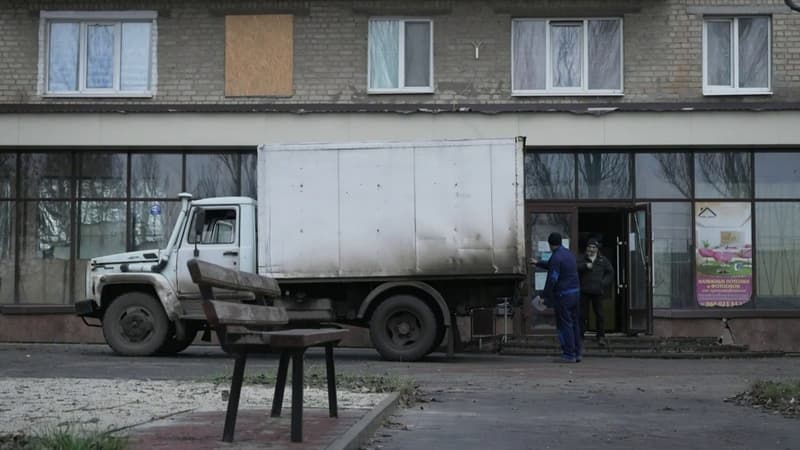Aboard his white van, whose dirty body testifies to the poor condition of the roads they travel, Vova distributes bread. A banal activity in times of peace, heroic when carried out in a zone at war, bombed daily.
Nine months after the start of the conflict between Kyiv and Moscow, this Ukrainian has not stopped distributing bread, and supplies daily to the inhabitants of Bakhmout, a city in eastern Ukraine, in the Donbass region. The activity is all the more dangerous as it is in this area where the fiercest fighting takes place. Bakhmout is shelled daily.
Vova is aware of the dangers she is running. “Many drivers refuse to do that, they are probably scared. I, I believe that you cannot change your destiny, if you ever have to die, it will happen. Bakhmout is very dangerous, he can hit anyone where, at any time,” he testifies to the steering wheel of his truck. Then to add: “I remember one time the roadside shelling was too big, I had to turn around.”
“It’s pretty quiet this morning”
That morning, the sounds of explosions are heard in the distance. As Vova unloads her bread, the shells sound. “They are shelling, they are shelling all the time, my house has been destroyed,” says a frightened customer of Vova’s, barely daring to go out the door of her house.
“It’s pretty quiet this morning,” the baker says, a little offhand.
The inhabitants of Bakhmout do not hide the fact that without these deliveries they would starve. All businesses have closed and most residents have preferred to leave. On the city tracks, only one cyclist dared to venture that day, turning suddenly when a new bomb had just fallen.
“Without this bread, I don’t know what could happen, we would starve,” testifies a man, greeted by the BFMTV teams.
The return of coal ovens
If Vova can deliver his bread, it is because a factory, located 20 kilometers from the front, continues to work day and night to produce it. The vagaries of the war required some restructuring.
The windows, broken during the summer, have been replaced with tarpaulins. The ovens, which used to work with gas, have returned to coal. For several weeks, Moscow has persisted in attacking Ukraine’s energy facilities.
“We had to hire more workers, train them. We also learned, because we didn’t know how to use coal. We had to refine all that, and after a month, we went back to normal production”, he testifies to the BFMTV microphone. Olexander Milov, plant manager.
“I do what I can”
Every day, before dawn, seven tons of bread are produced. Among the employees who constantly take turns preventing civilians from starving and supplying the soldiers, Olga, 32, a single mother.
“To be honest, I am afraid to come to work, but the soldiers on the front line do not say they are afraid, they defend us. That is why we cannot say anything and “we must continue,” he testifies. the young mother, a headscarf, in full swing.
Before slipping: “I have a family, I am a divorced mother and I have a son who must eat every day, I do what I can.”
Source: BFM TV


